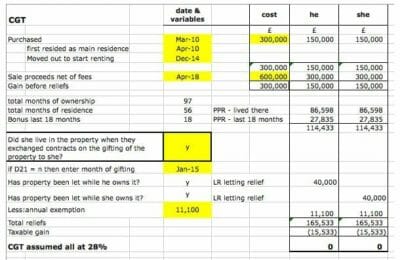In the spending audit in July 2024, new Chancellor Rachel Reeves announced a number of measures to help shore up the public finances. These included the introduction of VAT to school fees and an increase in the energy and gas company windfall tax. Another headline announcement was the abolition of the non-dom tax regime. In this post, we look at why the non-dom tax regime was scrapped, and what has replaced it.
What was the old non-dom tax regime?
Most UK taxpayers are domiciled in the UK. If you are domiciled here, you pay UK tax on your worldwide income and gains. This is the ‘arising basis’ of taxation.
On the other hand, if you are UK tax resident, but not domiciled in the UK, you could choose something called the ‘remittance basis’ of taxation. You would still pay normal taxes on your UK income and gains. However, you only paid tax on foreign income or gains if they were remitted to or enjoyed in this country.
People choosing the remittance basis of taxation usually had significant non-UK gains or income. By claiming the remittance basis, you lost your income tax personal allowance and annual exempt amount for CGT. On the flip side, you were not subject to inheritance tax on your non-UK assets.
Non-doms opting into the remittance basis for a long period also had to pay for the privilege. Once a non-dom had been UK tax resident for more than seven out of the previous nine tax years, choosing the remittance basis stopped being free. Instead it costs £30,000 per year, rising to £60,000 once they had been UK tax resident for more than 12 years.
Once a non-dom had been UK tax resident for 15 of the previous 20 tax years, they lost their entitlement to claim the remittance basis of taxation. Instead, they had to switch to the arising basis of taxation and pay tax on all worldwide gains and income.
What is the new non-dom tax regime?
Back in the Spring Budget 2024, then Chancellor Jeremy Hunt announced the abolition of the remittance basis of taxation for non-domiciled individuals. Instead, from 6th April 2025, a new Foreign Income and Gains (FIG) regime would come into force.
In her spending audit, new Chancellor Rachel Reeves said she would implement the new FIG regime. However, the Treasury has also said the new government would remove several advantages for non-doms that were left by the original FIG proposals.
How does the FIG scheme work?
The new FIG scheme came into force on 6th April 2025.
The scheme is open to people who become UK tax resident after 10 consecutive years of being non-resident.
Qualifying non-doms will not have to pay tax on foreign income or gains for the first four years that they are UK tax resident.
The scheme is optional. However, anyone choosing to be taxed under the FIG scheme loses their entitlement to personal allowances and the annual CGT exempt amount.
People who have been UK resident for less than four years (after a period of 10 tax years of non-UK residence), are able to use the new system for the remainder of those four years.
The previous government planned to offer a 50% reduction of foreign taxable income for the first year of the scheme to people who lost the remittance basis. The Labour government has now confirmed this will not be available.
FIG and inheritance tax
The Labour government has scrapped the current domicile-based inheritance tax (IHT) system. A new residence based system applies from 6th April 2025. From this date, non-UK assets are in scope for IHT if a person has been UK resident for 10 years prior to the tax year the chargeable event occurs. An individual will also be subject to IHT on non-UK assets for 10 years after ceasing to be non-UK tax resident.
Another significant change is the ending of excluded property trusts (EPTs) to keep assets out of the scope of IHT.
I’m a non-dom. What should I do next?
If you are a non-dom, you may be considering leaving the UK. Alternatively, you may be thinking of staying abroad for longer periods so that you don’t become UK-tax resident. For many, decisions like these will hinge on a lot of factors, such as the tax regime in the country you want to move to. Alternatively, you may have strong roots in the UK and are willing to pay more tax to stay here. However, from a UK tax point of view, our accountants are very happy to advise non-doms on their options. If you’d like advice, get in touch with our friendly team today.
About Karen Jones
Having worked for one of the world’s largest accountancy firms, Karen Jones uses her tax knowledge and skills to help clients obtain substantial reductions to their tax liabilities.
With an expanding portfolio of tax clients, Karen enjoys the variety her work brings her and particularly likes working with new businesses and people. With a growing number of tax clients, she frequently faces a variety of challenges and relishes the experience she gains as she solves them.
Karen likes the THP ethos: “I like the way the team has a professional, but friendly and down-to-earth approach – it creates a productive atmosphere that benefits everyone.”
Karen’s specialist skills:
- Personal Taxation
- Tax Efficient Planning
- Trust Administration












